Genetic Literacy Project

Talking Biotech: Should consumers fear use of hormones, antibiotics, trace chemicals and GMOs in our food?
From marketers to activists, there is an effort to shame consumers over the use of modern technologies, such as genetic ...

Epigenetics Around the Web: Avoid Craigslist for epigenetics advice; Engineering superhumans
Futurism's claims about the potential of epigenetics to create superhumans are about as scientific as a superhero comic book...and other ...

Genetic Literacy Project’s Top 6 Stories for the Week, March 26, 2017
From this past week, here are the #GLPTop6 among many great stories on human and agriculture genetics around the world ...

Fatty acids: How do all those omegas affect your health?
Omega 7 fatty acids are suddenly the rage in health circles. They are found in macadamia nuts, certain meats and ...
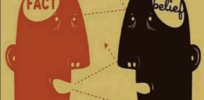
Cognitive dissonance: Why some people ignore science and reject GMO safety
Logical, science-based arguments often seem to have no affect on people hardened in their opposition to GMOs. The reasons are ...

2 young leukemia patients cured with T-cell immunotherapy using genetically engineered donor cells
Gene-edited immune cells cure two British babies with childhood leukemia. But instead of patient-specific cells, doctors used cheaper universal cells ...

Privacy perils: Impact of legislation that would strip genetic secrecy protections in US
Employers could force workers to divulge private genetic information under Republican-sponsored legislation making its way through Congress. It could have ...

Does most public research funding come from industry?
Who funds public research? UC Davis animal geneticist Alison Van Eenennaam says a funding analysis reveals that most of it ...
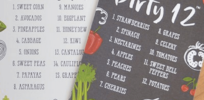
Environmental Working Group’s ‘dirty’ marketing serves ‘big organic’ donors, not consumers
Environmental Working Group's list of 'chemically soaked' fruits and vegetables is unscientific and promotes the false idea that conventional foods ...

Beta Israel reconsidered: Defending the Israelite ancestry of Ethiopian Jews
Ethiopian Jews are often portrayed in modern media and in some academic texts as having no true ancient ancestral connection ...
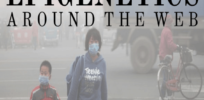
Epigenetics Around the Web: Spinach, turnips likely won’t protect you from air pollution, and more
This week’s features: BBC's poor decision to cover study claiming vitamin B protects against air pollution and experts join ELP ...

Farms are not like Eden: The case for aggressive human intervention in agriculture
Farming is controlling nature for our own purposes. There is no utopian state. We should stop trying to restore, recover, ...
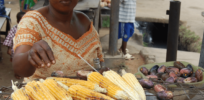
Talking Biotech: GM corn blocks carcinogenic aflatoxins, could eliminate ‘chronic health concern’ in developing world
Making corn safer: University of Arizona's Monica Schmidt on genetically engineering healthier food, arming plants with defenses to fight fungal ...
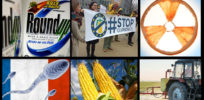
Genetic Literacy Project’s Top 6 Stories for the Week, March 19, 2017
From this past week, here are the #GLPTop6 among many great stories on human and agriculture genetics around the world ...

French men getting less sexy? As sperm counts slide, activists point to pesticides, scientists to vegetables
Studies have found vegetarians have lower sperm count and that French men in the 1980s had higher sperm counts than ...
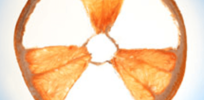
Organic activists claim organic Ruby Red grapefruits and durum wheat are GMOs in disguise
Last century, a genetic innovation gave a huge boost to agricultural productivity. And, no, it wasn't recombinant DNA. And yes, ...

Glyphosate: Dangerous chemical or anti-GMO bogeyman?
Glyphosate has drawn scrutiny and criticism like no other chemical in agriculture since the controversy over DDT. But years of ...

Glyphosate found ‘not carcinogenic’: Key European safety agency joins consensus view on herbicide’s safety
A key European safety agency says glyphosate does not cause cancer, paving the way for the herbicide to regain long-term ...
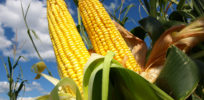
To make farming more sustainable, don’t mimic nature — do it better
Behind many efforts to make agriculture more sustainable is the idea that our farming systems need to be more like ...

Casting a wider net: Expanded carrier screening recommended for cystic fibrosis, other genetic diseases
All prospective parents should have carrier screening for a range of genetic disorders, according to new recommendations by the American ...

UN Commission report promoting organics, critical of pesticides challenged as biased
A recent UN report grabbed headlines for dismissing as ‘myth’ the notion that pesticides are necessary to feed the world ...

Talking Biotech: Habitat loss, parasitic mites — not GMOs, pesticides — prime culprits in butterfly, bee losses
GMOs and pesticides are often blamed for pollinator losses. Recent research indicates that other factors are likely more important, says ...

Too much knowledge? Should you sequence your baby’s genome?
Is there such a thing as having too much information about the health of your newborn? With the cost of ...
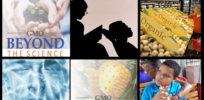
Genetic Literacy Project’s Top 6 Stories for the Week, March 13, 2017
From this past week, here are the #GLPTop6 among many great stories on human and agriculture genetics around the world ...

Psychotherapy revival: Can “talk” therapy change our brains and genes?
"Talk therapy" has fallen out of fashion as being more art than science. But new research suggests that psychotherapy may ...

Buying organic food to avoid pesticides? You may want to reconsider
Do you seek out organic fruits and vegetables to avoid those on the Environmental Working Group’s Dirty Dozen list, fearful ...

Quest for a cure: Gene therapy offers hope for children with rare form of Charcot-Marie-Tooth disease
A couple strives to help their daughter, who was born with a rare form of Charcot-Marie-Tooth, a muscle-wasting disease that ...
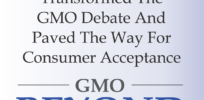
How 2016 Transformed The GMO Debate And Paved The Way For Consumer Acceptance
The debate over GMO food safety is over, although diehard opponents of farming innovations may not acknowledge it. Consumers want ...

